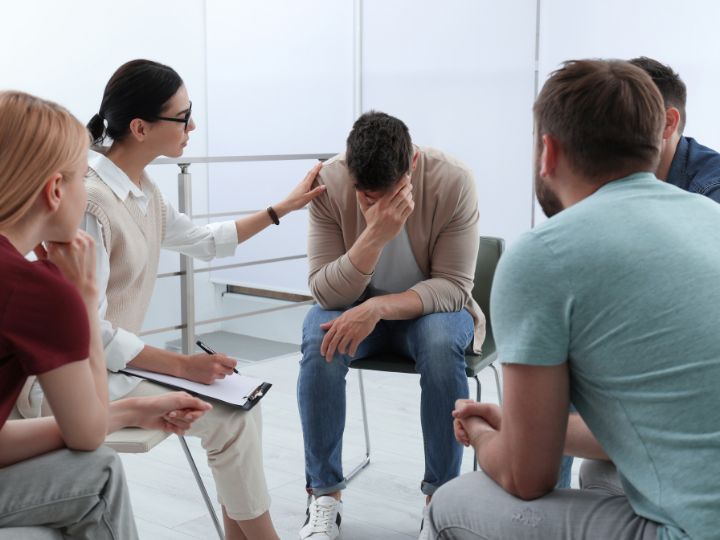Benzo Buddies support groups have emerged as a popular online resource for individuals struggling with benzodiazepine addiction and seeking peer support. While these groups can provide a sense of community and shared experience, the lack of professional oversight is a significant concern that can potentially hinder the recovery process. In this article, we will explore the risks associated with the absence of professional guidance in Benzo Buddies support groups and discuss the importance of seeking expert advice when navigating benzodiazepine addiction recovery.
The Role of Professional Oversight in Addiction Recovery
Professional oversight, provided by qualified healthcare providers such as addiction specialists, psychiatrists, or trained therapists, plays a crucial role in ensuring the safety and effectiveness of addiction recovery. These professionals bring a wealth of knowledge, experience, and evidence-based practices to the table, allowing them to:
- Assess individual needs and develop personalized treatment plans
- Monitor progress and adjust interventions as necessary
- Provide accurate information and dispel myths or misinformation
- Identify and address co-occurring mental health disorders
- Ensure the safe and appropriate use of medications, including tapering schedules
Without the guidance of trained professionals, individuals in recovery may be at risk of receiving inaccurate, misleading, or even harmful advice that can jeopardize their progress and well-being.
The Risks of Unsupervised Peer Advice in Benzo Buddies
Support Groups While peer support can be invaluable in fostering a sense of belonging and providing emotional encouragement, the lack of professional oversight in Benzo Buddies support groups can give rise to several risks:
- Misinformation and Inaccurate Advice: Members of Benzo Buddies support groups may share personal experiences, opinions, or anecdotal evidence that is not grounded in scientific research or best practices. This can lead to the spread of misinformation, such as promoting rapid tapering schedules or advocating for the abrupt discontinuation of benzodiazepines, which can be dangerous and potentially life-threatening.
- Inadequate Assessment of Individual Needs: Without the expertise of a trained professional, peer support groups may not be equipped to properly assess an individual’s unique situation, including the severity of their addiction, co-occurring mental health disorders, or other medical conditions that may impact their recovery. This lack of personalized assessment can result in generic, one-size-fits-all advice that may not be appropriate or effective for everyone.
- Reinforcement of Negative Experiences: In the absence of professional moderation, Benzo Buddies support groups may inadvertently contribute to the reinforcement of negative experiences, fears, or anxieties related to benzodiazepine withdrawal. Members may share horror stories or dwell on the most challenging aspects of recovery, creating an echo chamber of negativity that can discourage or demoralize those seeking help.
- Delay in Seeking Professional Help: The reliance on peer support without professional oversight may cause some individuals to delay seeking the necessary medical or therapeutic interventions. This delay can prolong the recovery process, exacerbate withdrawal symptoms, or even lead to dangerous situations if underlying mental health or medical conditions are left unaddressed.
The Importance of Integrating Professional Guidance and Peer Support
While the risks associated with lack of professional oversight in Benzo Buddies support groups are significant, it is essential to recognize that peer support can still play a valuable role in the recovery process when combined with expert guidance. By integrating professional oversight and peer support, individuals can benefit from:
- Accurate Information and Evidence-Based Practices: Healthcare professionals can provide accurate, up-to-date information and guide individuals towards evidence-based practices, ensuring that the advice received in peer support groups is grounded in scientific research and best practices.
- Personalized Treatment Plans: Trained professionals can assess individual needs and develop customized treatment plans that take into account the unique challenges and circumstances of each person’s situation. This personalized approach can be complemented by the emotional support and shared experiences offered in peer support groups.
- Moderated Discussions and Positive Reinforcement: Professional moderators can help steer discussions in Benzo Buddies support groups towards constructive and positive topics, encouraging members to focus on progress, coping strategies, and success stories rather than dwelling on negative experiences or fears.
- Timely Interventions and Referrals: By monitoring peer support groups and maintaining open lines of communication, healthcare professionals can identify individuals who may require additional medical or therapeutic interventions and provide timely referrals to ensure that everyone receives the appropriate level of care.
The lack of professional oversight in Benzo Buddies support groups is a significant concern that can potentially hinder the recovery process for individuals struggling with benzodiazepine addiction. While peer support can offer valuable emotional encouragement and a sense of community, the absence of expert guidance can lead to misinformation, inadequate assessment of individual needs, reinforcement of negative experiences, and delays in seeking necessary professional help.
To maximize the benefits of peer support while minimizing the risks, it is crucial to integrate professional oversight into the recovery process. By combining the expertise of healthcare professionals with the emotional support offered in Benzo Buddies support groups, individuals can receive accurate information, personalized treatment plans, moderated discussions, and timely interventions that promote a safe and effective recovery journey.
If you or a loved one is struggling with benzodiazepine addiction, it is essential to prioritize seeking professional help from qualified healthcare providers. While peer support can be a valuable complement to expert guidance, it should never be relied upon as the sole source of information or advice. By working closely with addiction specialists, psychiatrists, or trained therapists, individuals can develop a comprehensive, evidence-based recovery plan that addresses their unique needs and maximizes their chances of success.


